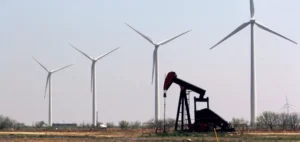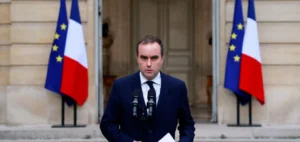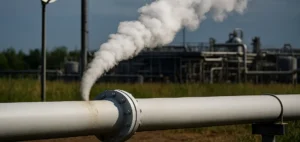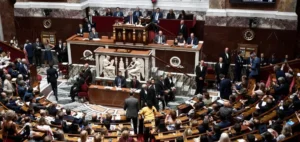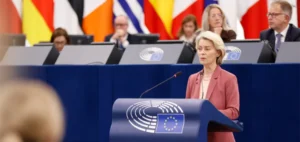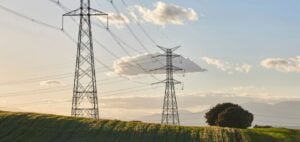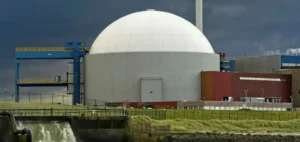Between a plethora of new oil and gas exploration permits and an offshore wind crisis, clouds are gathering over the UK’s carbon neutrality promises.
Controversy surrounding Oil Expansion and Wind Power in Great Britain
At the end of July, the government of conservative Rishi Sunak promised “hundreds” of new licenses for hydrocarbon exploration and production in the North Sea, arousing the ire of environmentalists. In early August, the NGO Greenpeace covered the Prime Minister’s private residence with a huge “oil-black” tarpaulin to denounce “a new drilling frenzy”.
“Any government support for hydrocarbons has a negative impact on the energy transition,” insists Erik Dalhuijsen, co-creator of Aberdeen Climate Action, interviewed by AFP on the sidelines of the Offshore Europe conference.
“Launching new oil fields is not very consistent with carbon neutrality,” agrees Jean Boucher, a member of Extinction Rebellion in Aberdeen, and an environmental sociologist.
More bad news on the wind power front, the sector at the heart of the UK’s energy transition plan: the government of Conservative Rishi Sunak announced on Friday that it had failed to award new permits to build offshore fields in its latest call for tenders, due to a lack of applicants.
Global Inflation and War in Ukraine: Impact on the British Wind Industry
Russia’s invasion of Ukraine has caused inflation and production costs to soar around the world, which is reflected in the price of steel and other materials used to build wind turbines, while electricity rates charged by energy companies are capped.
As a result, companies in the sector claim that these projects are no longer profitable.
Environmental NGO Greenpeace blasted the move as “the worst clean energy disaster for at least a decade”, which it said “jeopardizes the UK’s decarbonization targets”.
Swedish energy company Vattenfall has already thrown in the towel on a major project, Norfolk Boreas, and others may follow.
“I know other companies are looking carefully at their permits and their ability to invest” in wind power in the UK, argues Michael Tholen, sustainability director of energy lobby Offshore Energy UK (OEUK), interviewed by AFP at the Offshore Europe conference, held this week in Aberdeen.
– New priorities – Mads Nipper, boss of Danish electricity giant Orsted, also tried to warn that “offshore ambitions will only be realized with sound bidding frameworks and realistic prices”.
UK Onshore Wind: Changing Energy Priorities
Just days before the UK government’s admission of failure on offshore wind farms, Downing Street lifted the tacit ban.
The war in Ukraine has changed London’s stated priorities.
“There has been interference between energy security and carbon neutrality” in government priorities, especially as there have been “a lot of political changes in recent years” at the helm of the country, notes Clare Bond, Professor of Geophysics at Aberdeen University, interviewed by AFP.
Industry experts call for urgent reform of the tendering process. In order to introduce the idea of a minimum profit for energy providers, as suggested by Erik Dalhuijsen.
Objective 2050: The Growing Challenges to Carbon Neutrality in the UK
Others stress the need for long-term stability in taxation and regulation.
“We need to put the right framework in place and restore investor confidence,” insists Clare Bond of Aberdeen University.
The UK needs to attract £100 billion of private investment in hydrocarbon and offshore wind power to meet its carbon neutrality targets by 2050.
For Dalhuijsen, the goal of carbon neutrality by 2050 is still theoretically achievable, “but it’s getting harder and harder. We have to reduce CO2 emissions, and every year that goes by, it becomes twice as difficult, or almost.
Why does it matter?
The UK’s decisions on oil, gas and offshore wind exploration have implications for its carbon neutrality and energy transition. The need for reform to encourage investment in clean energy is crucial.




